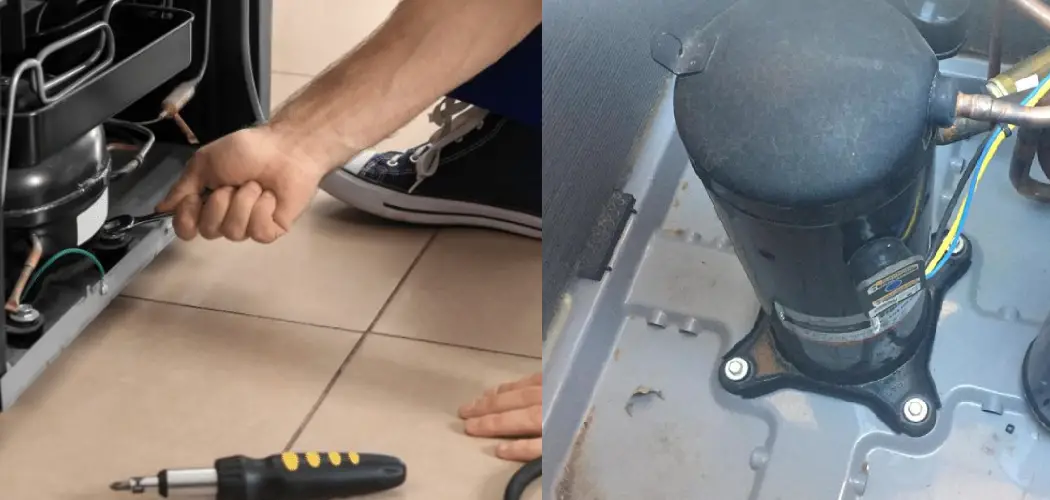In the summertime, homeowners need to look for an overheated compressor. When temperatures rise, compressors can overheat, leading to malfunctions and costly repairs. If your compressor is overheating, it can cause a lot of damage.
In this blog post, we will show you how to cool down an overheated compressor and prevent further damage. Follow these simple steps, and your compressor will be back up and running in no time! Stay cool!
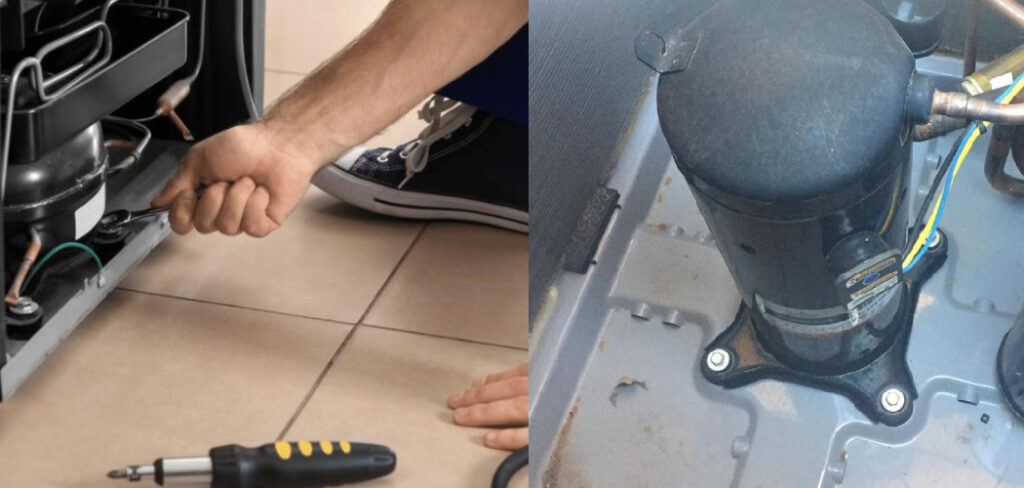
How Can You Recognize Your Compressor is Overheated?
There are a few signs that indicate your compressor is overheated. First, you’ll notice that the compressor is running hot to the touch. Second, the compressor may make strange noises or vibrations. Finally, the compressor may shut off unexpectedly. If you notice any of these signs, it’s important to take action immediately.
What Causes a Compressor to Overheat?
There are a few reasons why a compressor might overheat. One common cause is the excessive duty cycle. This means that the compressor is running for too long without a break. This can be caused by various factors, such as a clogged filter or an incorrect setting on the thermostat.
Another cause of overheating is a lack of proper ventilation. If the compressor is located in an enclosed space, it can overheat quickly. Finally, a faulty or damaged component can also cause the compressor to overheat.
10 Steps of How to Cool Down an Overheated Compressor
1. Turn Off the Compressor:
This is the first and most important step. If the compressor is left on, it will continue to overheat, leading to further damage. Be careful when handling the compressor, as it will be hot to the touch. If you touch hot metal, you could be burned.
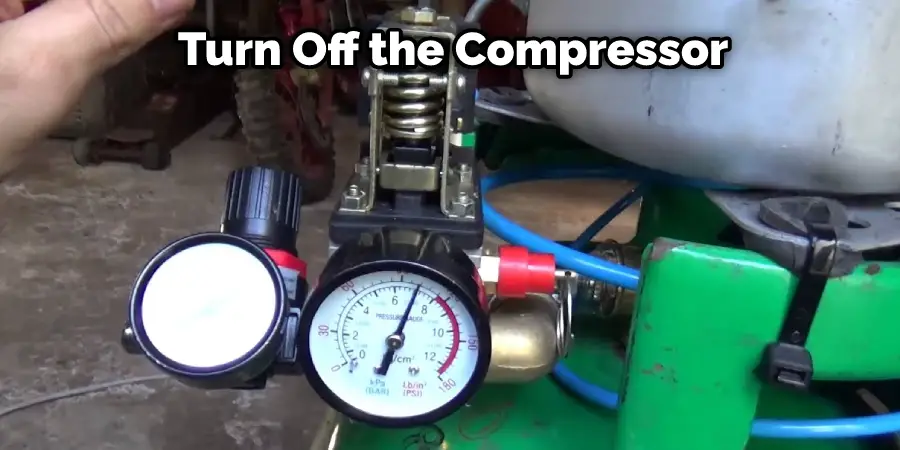
2. Let the Compressor Cool Down:
Once the compressor is turned off, give it time to cool down. Do not attempt to touch or move the compressor while it is still hot. You can cool down the compressor by spraying it with cool water from a hose. Another way to cool down the compressor is to use a fan. After cooling down the compressor, you can touch it and move on to the next step.
3. Check for Any Debris:
Once the compressor has cooled down, check for any debris that might be blocking the vents or causing the compressor to overheat. Debris is often the cause of an overheated compressor. Be sure to remove any dirt, dust, or leaves from the area around the compressor. It will help the compressor to cool down more quickly.
4. Clear Any Debris:
If you find any debris, carefully remove it from the compressor. Be sure not to damage the fins on the compressor. If the fins are damaged, it will reduce the compressor’s ability to dissipate heat. Then you will get into big trouble.
5. Check the Air Flow:
Once the compressor is clear of debris, check the airflow around it. Make sure that nothing is blocking the vents or causing airflow to be restricted. Blocking the vents can cause the compressor to overheat.
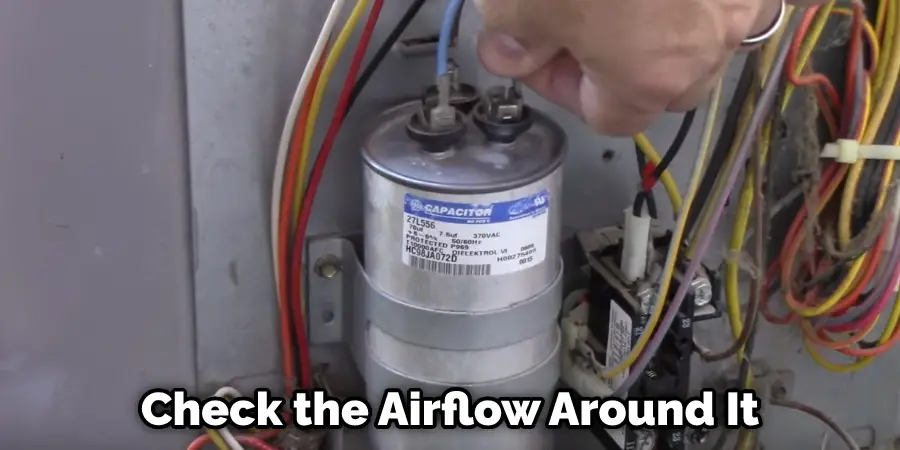
6. Increase Air Flow:
If the airflow is restricted, increase it by opening up the vents or moving the compressor to a more open area. The area may be too small if the compressor continues to overheat. Be careful when moving the compressor, as it may still be hot.
7. Check the Thermostat:
If the compressor is overheating due to an excessive duty cycle, check the thermostat and make sure it is set correctly. You can check the thermostat by opening up the control panel and looking at the settings. If the thermostat is not set correctly, it can cause the compressor to run for too long without a break. So, be sure to set it correctly.
8. Adjust the Settings:
If the thermostat is set incorrectly, adjust the settings so that the compressor will cycle off more frequently. You may think about how you can understand whether the compressor is cycling off frequently or not. There is an easy way to understand that. Just touch the compressor; if it is too hot to touch, it does not cycle off frequently. If it is just warm, then it is cycling off frequently.
9. Inspect the Compressor:
Once the thermostat is set correctly, inspect the compressor for any damage. If you find any damaged components, replace them with new ones. You can find the damaged components by looking for cracks, leaks, or other signs of damage.
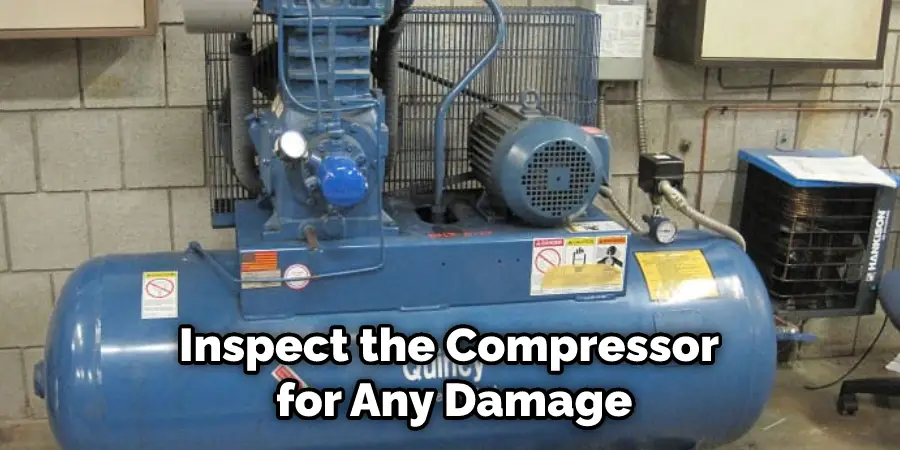
10. Check for Leaks:
Be sure to check for leaks in the system. Leaks can cause the compressor to overheat. Look for any signs of moisture around the compressor to check for leaks. If you find a leak, be sure to fix it before turning on the compressor. You can fix the leak by soldering the leak or by replacing the damaged component.
Following these simple steps, you can cool down an overheated compressor and prevent further damage. Be sure to keep your compressor clean and clear of debris, and ensure that the airflow around it is not restricted. By taking these preventive measures, you can avoid costly repairs and keep your compressor running smoothly.
Tips and Tricks
- If the compressor is still overheating, you may need to replace the thermostat.
- Ensure the area around the compressor is clear of any flammable materials.
- Be sure to wear gloves and safety glasses when working with the compressor.
- If the compressor is still not cooling down, you may need to call a professional.
Where Can You Find the Professional For Repairing the Compressor?
If you are looking for a professional to repair your compressor, you can find one at your local hardware store or by searching online. Be sure to read reviews before hiring a professional, and be sure to ask for references. These simple steps allow you to find a qualified professional to help you fix your compressor.
10 Precautions to Prevent Overheating of Compressors
- Check the compressor oil level regularly and ensure that it is topped up as per the manufacturer’s recommendations.
- Avoid running the compressor for long periods of time without a break. If possible, use a timer to switch the compressor off for a few minutes every hour or two.
- Keep the area around the compressor clean and free from debris.
- Make sure that the compressor is properly ventilated.
- Check the air filter regularly and clean or replace it as necessary.
- Avoid using the compressor in dusty or dirty environments.
- Don’t allow the compressor to run while it is empty of air.
- Check for leaks in the compressor system and repair them as soon as possible.
- Use a suitable cooling agent in the compressor system if the manufacturer recommends.
- Regularly check the condition of the belts and pulleys, and adjust or replace them as necessary.
These simple precautions can help prevent your compressor from overheating and prolong its lifespan.
What Are the Problems an Overheated Compressor Can Cause?
If a compressor overheats, it can cause several problems, such as:
- Reduced efficiency
- Shortened lifespan
- Reduced power output
- Damaged belts and pulleys
- Leaks in the system
- Noisy operation
- Smoke or flames coming from the compressor
If you notice any of these problems, it is important to take action to cool down the compressor and prevent further damage.
How Can You Fix the Problems?
There are several ways to fix the problems caused by an overheated compressor. Some of the most common methods include:
- Replacing the compressor
- Repairing the cooling system
- Adding more coolant to the system
- Adjusting the belts and pulleys
- Cleaning or replacing the air filter
- Checking for leaks in the system
If you notice that your compressor is overheating, it’s important to take action right away. These steps will help you avoid further damage to your system and keep your home cool and comfortable all summer long.
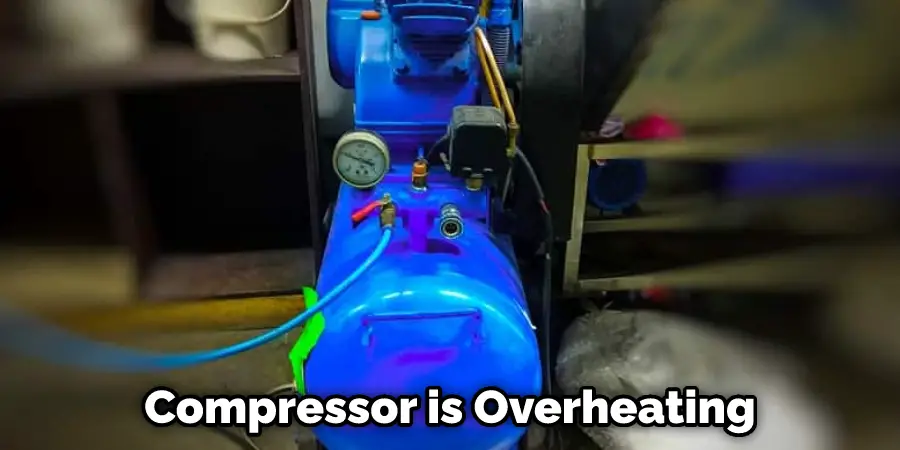
Are Fixing the Overheated Compressor Costly?
The cost of repairing an overheated compressor will vary depending on the extent of the damage. If the compressor can be repaired, the cost will be much less than if it needs to be replaced. In some cases, the damage may be so severe that the entire compressor system will need to be replaced. This can be a very costly repair.
Conclusion
As you can see, there are a few things that you can do to help cool down an overheated compressor. If your compressor is already experiencing problems, be sure to call a professional for assistance. Hopefully, this article has helped you learn more about keeping your compressor running smoothly.
By following the tips in this article, you may be able to know how to cool down an overheated compressor and avoid costly repairs. Have you ever had to deal with an overheated compressor? What methods did you use to cool it down? Let us know in the comments section below.
Rick is a handyman who grew up helping his dad with his business. He learned a lot from him about how to fix things, and also about how to work hard and take care of business. These days, Rick is still into fixing things- only now, he’s doing it for a living.
Rick is always looking for new ways to help people grow and develop. That’s why he started contributing to this blog: to share all his experience and knowledge so that he can help people who are interested in DIY repair.

